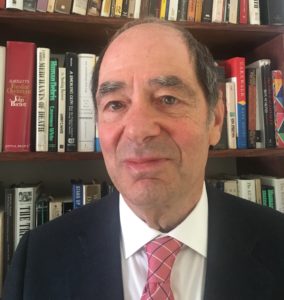Opinion: City Attorney Should Not Be Allowed to Undermine Police Commission
Jun 28, 2018
Posted in Police-Public Safety, Racial profiling, Responsive Government

By Larry White, Attorney
Oakland’s City Council is poised to enact an enabling ordinance that would fill in the gaps in Measure LL, which created the Oakland Police Commission and the Civilian Police Review Agency and that was approved by 83 percent of the city’s voters.Our new Police Commission is one of the strongest and most independent civilian oversight bodies in the country. The City Council will take a vote on July 10 that could affirm that independence—or undermine it.
The Coalition for Police Accountability drafted the original City Charter amendment and gave it to the City Council, which made changes and put it on the ballot in 2016.
Unfortunately, the messy process of amending the Charter—the back and forth of compromise and re-drafting the measures, as well as the influence of the police union—resulted in language wasn’t always crystal clear.
At least one important item was left out completely—a civilian Inspector General of the Police Department. Another matter was left murky: can the Commission have its own lawyer, or must its lawyer be under the thumb of the City Attorney.

Although Measure LL twice calls for a “non-City Attorney legal advisor,” City Attorney Barbara Parker says that another section of the Charter overrules the voters’ wishes and makes her the Commission’s legal advisor.
That’s a misreading of the Charter, which gives her office the right to represent the Commission in lawsuits against it but does not require the Commission to request legal advice from her.
Oakland’s Police Department has been under the supervision of a federal judge since 2003. In 2015, Judge Thelton Henderson commissioned attorney Edward Swanson to report on why so many Oakland police officers accused of misconduct were never punished.
Swanson found that the City usually lost the arbitrations that are police officers’ last step in discipline. “Time and again, the City wrote checks to settle civil lawsuits arising out of police misconduct, only to see the City Attorney’s Office fail to uphold discipline for that very same misconduct,” he wrote.
The City Attorney’s office, Swanson charged, failed to prepare cases, delayed in assigning cases to outside counsel, didn’t select outside counsel with police discipline expertise, and failed to prosecute cases vigorously.
The City Attorney’s office didn’t get evidence ahead of time, rarely if ever called civilian witnesses, and didn’t use outside expert witnesses.
Swanson concluded that “the same problems arose again and again—vague policies, incomplete investigations, unprepared attorneys—with nothing done to ensure that the problems were corrected before they arose again.”
Since then, the City Attorney’s office, under intense scrutiny, has somewhat improved its performance. Swanson was still worried. Eventually, Court supervision will end. “The question, then, is how to make sure that when the Court and the key individuals in the City working on discipline have moved on, the discipline system will not revert to its former, ineffectual state,” wrote Swanson.
That was written before the November 2016 vote that created the Oakland Police Commission. The Commission was designed by people who believed that the City of Oakland had failed for many years to effectively oversee the police and that none of the City’s existing institutions were capable of doing so.
The Commission’s sole mission is to oversee the Police Department, to promote constitutional policing that is free of racial bias and to make sure that police misconduct is punished effectively.
Court supervision, even if it lasts for another decade, is temporary. The Police Commission is here to stay.
The battle for effective civilian oversight goes on.
When the City Council considers approving an ordinance with a lawyer and an Inspector General reporting to the Police Commission, we hope they will heed the wish of the voters and make the Police Commission as independent and effective as it was designed to be.
The Council should also go one step further: put on this year’s ballot a clean-up to Measure LL that settles these matters once and for all.
Attorney Larry White is a member of the Oakland Coalition for Police Accountability. He served as a Senior Staff Counsel for the California Department of Insurance from 1992 to 2013. His responsibilities included reviewing and commenting on dozens of pieces of legislation every year as well as drafting new legislation and regulations.